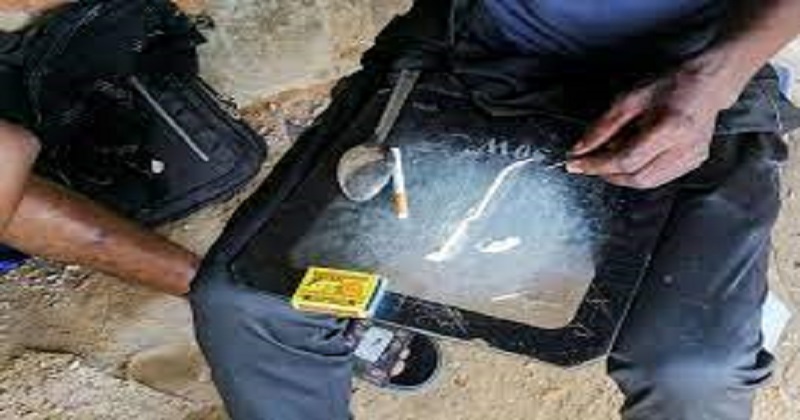
Kinshasa’s authorities are rattling with a new craze for a drug derived from crushed vehicle exhaust filters, triggering a campaign to stop the trend. The campaign coincides with a rise in car part thefts. Following a call from DRC President Felix Tshisekedi, police rounded up and paraded nearly 100 dealers and users of the drug ‘bombe,’ which means powerful in the local Lingala language. As Tshisekedi noted at a weekly meeting of ministers, ‘this social phenomenon demands the collective responsibility of everyone in the country’.
One young man seeks oblivion in an abandoned shack in Kinshasa, where he slits open a bag of brown powder and blends it with crushed pills, before snorting the ‘bombe’ mixture with friends. A few minutes later, the trio sways slowly, scratching themselves in a catatonic state that experts in Congo claim can cause people to stand motionless for hours or sleep for days. In a white designer shirt, 26-year-old Cedrick explained that the gang used to drink whiskey very heavily and hurt people. ‘When you use bombe, you relax, you feel tired, and you stay standing or sitting for a long time. You can then go home without bothering anyone’, he said.

Police, drug experts, and car owners are not so sanguine. The brown powder is obtained by crushing the ceramic honeycomb core of automotive catalytic converters, the device that reduces toxic gas emissions from vehicle exhaust pipes. Rising drug demand is attributed by mechanics to the theft of platinum, palladium, and rhodium-coated catalytic converters. Every day, five to ten clients come to Kinshasa mechanic Tresore Kadogo with the same problem.
Read more: Rebranding as ‘East India Company 2.0’: Amazon highlights it’s positive impact
Kadogo said they checked underneath the car and the catalytic converter had already been removed. It’s being used with vitamin pills, sleeping tablets, sedatives and tobacco, but little is known about how it works or the long-term effects, said Dandy Yela Y’Olemba, country director of the World Federation against Drugs. Yela warned that metals in catalytic converters can cause cancer. Yela said that the substance is not made for consumption.

Post Your Comments